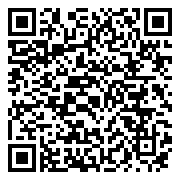Introduction
What is Knowledge Management, and why is it vital for today’s organizations? The Certified Knowledge Manager (CKM) program is a globally recognized and respected knowledge management certification, designed to empower professionals to lead, implement, and sustain robust knowledge management systems. This intensive 10-day course delivers deep insights into knowledge management strategies, tools, and best practices—equipping participants to harness organizational knowledge for innovation, operational excellence, and competitive advantage.
Whether you’re a current or aspiring knowledge management specialist, this course helps you define knowledge management in a real-world context and apply personal knowledge management and enterprise-wide approaches effectively.
Course Objectives
By the end of this knowledge management course, participants will be able to:
- Define knowledge management (certified knowledge manager ckm) and understand its strategic relevance in modern enterprises.
- Design and implement knowledge management frameworks aligned with business goals.
- Capture, codify, and disseminate both tacit and explicit knowledge throughout the knowledge management cycle.
- Deploy knowledge management systems, including content platforms, AI tools, and knowledge portals.
- Understand how to build a knowledge management strategy and integrate it into the organization's long-term vision.
- Prepare confidently for the CKM certification exam, demonstrating a strong grasp of KM methodologies and practices.
Course Outlines
Day 1: Introduction to Knowledge Management (ib) (certified knowledge manager ckm
- What is a knowledge management system, and how does it function?
- The value and benefits of knowledge management in various industries.
- Types of knowledge: tacit vs. explicit.
- Exploring the knowledge management process and lifecycle.
- Overview of CKM certification expectations.
Day 2: Strategy and Frameworks
- Developing a holistic knowledge management strategy.
- Aligning KM with corporate objectives.
- Key models: SECI, Nonaka-Takeuchi, Wiig.
- Knowledge management maturity models and roadmaps.
Day 3: Knowledge Capture and Codification
- Methods for extracting tacit knowledge and organizational insights.
- Creating reusable assets: SOPs, guides, lessons learned.
- Tools for managing knowledge management documentation.
Day 4: Sharing and Collaboration
- Building a culture of knowledge sharing.
- Launching Communities of Practice (CoPs).
- Leveraging collaborative knowledge management solutions.
- Removing silos and resistance through recognition systems.
Day 5: KM Tools and Technologies
- Exploring various types of knowledge management systems.
- Integrating content management systems with KM platforms.
- AI and automation in information and knowledge management.
- Evaluating and deploying KM-enabling tools.
Day 6: Measuring KM Success
- Setting KPIs and metrics for knowledge management best practices.
- Tools for ROI analysis and business case development.
- Building KM dashboards and using the Balanced Scorecard approach.
Day 7: Governance and Change Management
- Establishing KM governance structures and policies.
- Roles and responsibilities within knowledge management positions.
- Leading organizational change with KM as a strategic pillar.
Day 8: Applied KM and Case Studies
- Industry-specific use cases of knowledge management strategies.
- Success stories and lessons from knowledge management failures.
- Group workshops and KM pilot design.
Day 9: Real-World Application
- Applying concepts in the workplace.
- Planning maintenance strategies aligned with the knowledge management plan goals.
- Ethical considerations and professional conduct in KM roles.
Day 10: Final Review and Certification Prep
- Recap of core knowledge management, meaning, and topics.
- Certification readiness and final Q&A.
- Networking, professional development tips, and course feedback.
- Issuance of certification of participation.
Why Attend This Course: Wins & Losses!
- Global Recognition: Validate your KM expertise with a globally respected Certified knowledge manager CKM certification.
- Strategic Leadership: Learn to lead with vision using knowledge management and strategy principles that drive business transformation.
- Practical Expertise: Master knowledge management solutions and tools that support innovation, efficiency, and learning.
- Professional Growth: Connect with peers in the global KM community and explore diverse knowledge management positions.
- Real Impact: Walk away with actionable skills and a personalized knowledge management plan for immediate organizational application.
Conclusion
In a world driven by data, collaboration, and innovation, understanding why knowledge management is important is more critical than ever. The CKM program not only provides a comprehensive knowledge management definition but also empowers professionals to become transformational leaders.
By mastering the types of knowledge management, certified knowledge manager CKM certification, frameworks, and tools, you will be equipped to deliver real organizational value. Whether you're seeking to advance your career, optimize internal processes, or lead enterprise-wide KM initiatives, this knowledge management training course sets the foundation for long-term success.
Join the global community of Certified Knowledge Managers and take the next step in building a knowledge-driven future for your organization.


